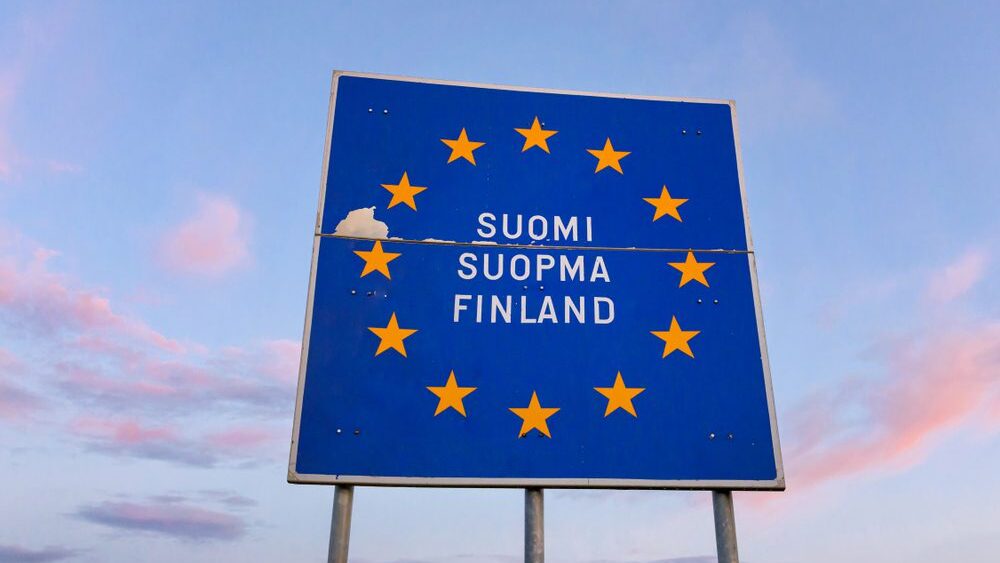
Photo: Ingo70 / Shutterstock.com
The Finnish government has announced that it will be closing its eastern border with Russia at several crossings at midnight on Friday following an uptick in asylum seekers entering the country.
The crossing points at Imatra, Niirala, Nuijamaa and Vaalimaa, all of which lie toward the south-east of the country, will all be closed this week and asylum applications will be centralised to the Salla and Vartius border stations, Finnish broadcaster Yle reports.
According to the Finnish border guard, around 280 asylum seekers have arrived from Russia since September. Interior Minister Mari Rantanen stated that all of the arrivals were living in Russia legally but it is unclear if they are all Russian nationals.
Markku Hassinen of the Finnish Border Guard commented on the ongoing situation saying, “This poses a serious threat to national security, which is already burdening the operations of the authorities in the eastern border area.”
“There is a very clear risk of escalation here. Our actions are such that they aim to prevent this situation from falling apart in our hands,” Hassinen added.
A total of 18 asylum seekers arrived at the Vartius border crossing on bicycles on Thursday, November 16th and were taken into custody by border guard officials but the border guards were unable to give clear answers regarding the nationalities of those who are seeking asylum.
However, at the Finnish border town of Vyborg, journalists from Yle claimed to have encountered a family of asylum seekers, a father, mother and child, just across the border in Russia who claimed to be originally from Syria.
The journalists were unable to interview the family as a Russian border guard interrupted the conversation.
Since the invasion of Ukraine by Russian armed forces in February of 2022, Finland has seen some Russian nationals attempt to flee and claim asylum, particularly those fleeing military service.
A report from November of last year claimed that some Russian nationals were using forged passport stamps in order to stay in the country and avoid having to go back to Russia.
“Russians also came to us through air borders, not to Finland but also to other parts of Schengen. I believe that we are talking about thousands of Russians who are currently present in the region,” Matti Pitkäniitty, Head of the International Unit of the Finnish Border Guard said last year.
If more of those coming to Finland match the profile of the Syrian family, Russia may be engaging in similar tactics to Belarus in 2021 where thousands of migrants were allowed to cross into Poland and other European Union border states, some of them allegedly forced at gunpoint.
Described as a form of “hybrid warfare,” the Belarusian authorities allowed migrants to cross for several months, with around 11,000 of them travelling through Poland to reach Germany, 5,300 arriving in October of 2021 alone.
Outgoing Polish Prime Minister Mateusz Morawiecki slammed Belarusian President Alexander Lukashenko in November of 2021, accusing the Belarusian leader and his government of trying to destabilise Europe.
“Lukashenko’s and Putin’s pressure is already being felt throughout Europe,” he said, adding, “This is just the beginning. The dictators will not stop. I want to assure you, Poland will not yield to blackmail and will do everything to stop the evil threatening Europe.”
Finland has been concerned that a similar tactic may be used against their country by Russia, particularly as the country was applying to join the NATO military alliance.
In April of 2022, Charly Salonius-Pasternak, a senior researcher at the Finnish Institute of International Affairs, warned that Russia may seek retaliation for Finland joining NATO, which it did earlier this year in April.
“It could be diplomatic counterattacks, cyberattacks or, for example, the exploitation of large numbers of asylum seekers as a kind of hybrid threat,” Salonius-Pasternak said.
The former Finnish government, led by former Prime Minister Sanna Marin, took the threat seriously, stating in June of that year that it would be amending the Emergency Powers Act and the Border Guard Act to cope with a potential wave of asylum seekers.
While Finland is able to close various border crossings, the large amount of terrain between Finland and Russia means that building physical barriers across the entire border is not possible according to a statement from Mikko Lehmus, the head of the Situation and Risk Analysis Centre of the Border Guard, made in 2021.
